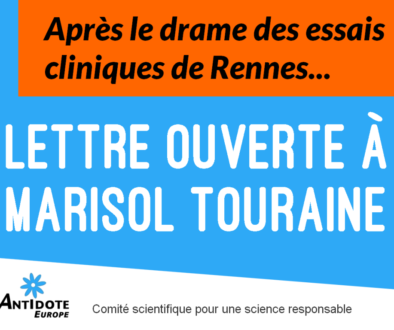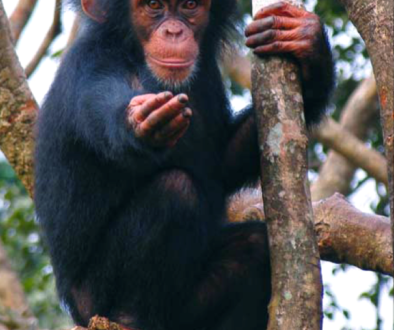Justice for our health
Antidote Europe has lodged a complaint with the European Mediator for wasting precious time and resources in the battle against cancer.
A complaint has been lodged with the EU ombudsman on grounds of maladministration on the part of the European Commission (EC). The complaint arises from EC project (“PL037712”), which will run for five years at a cost of more than ten million euros, and whose aim is to assess the cancer-causing potential of chemical substances. Antidote Europe is challenging the project on the grounds that the research methods in question are already available and that the EU study is therefore wasting precious time and resources in the battle against cancer.
The project in question specifically relates to screening methods for detecting cancer, using the science of ‘genomics’ (gene response), also known as ‘cancerogenomics’. Such tests are already in use in the US and in Japan, and have been available for the past decade. These gene tests represent just one of the many applications of modern toxicology, known collectively as ‘toxicogenomics’. Other applications of this technology include the risk assessment of chemicals with respect to their effects on the nervous system and the reproductive system.
In commissioning the said study, the EC is behaving as if it is fundamentally unaware of the fact that regulatory authorities have already responded favourably to such studies. The FDA (1) and EMEA (2) — whose remit it is to assess chemical substances — are actively encouraging the submission of data based on such gene tests. The EC must now address Antidote Europe’s complaint to the EU ombudsman. This action follows earlier efforts by Antidote Europe of informing a key EC scientific consultant, Dr Thomas Hartung, director of the European Centre for the Validation of Alternative Methods (ECVAM).
Antidote Europe fears that five valuable years will have been wasted if the project goes ahead as planned. In effect, this means that risk assessment of chemicals will continue to rely on animal experiments, even though they have been criticised by Dr Hartung as constituting ‘simply bad science’. In view of the entry into force of the REACH (3) legislation in June 2007, there is now a real danger that thousands of chemicals could be allowed on to the market on the basis of animal tests, which could seriously compromise human health. Cancer has already become the number one cause of death in France. This trend will certainly not be reversed if we continue to rely on ‘bad science’ in place of ‘twenty-first century science’(4), which is already available and is clearly more cost effective.
The complaint lodged by Antidote Europe already has the support of 81 organisations from nine different countries, representing a total of more than 300,000 EU citizens. More signatures are on the way and will be added to our complaint to the ombudsman. These groups campaign on several fronts (health, environment, animal welfare) and reflect the concerns shared by all those who care about responsible management of our health and our environment – the very aim of the EU chemicals testing program,REACH.
Antidote Europe is a non profit NGO, comprising research scientists with past careers at the French-based Centre National de la Recherche Scientifique (CNRS) sharing a common goal of improving human health.
(1) US Food and Drug Administration
(2) European Medicines Agency
(3) Registration, Evaluation, Authorisation and Restriction of Chemicals
(4) “Toxicology in the twenty-first century: a vision and a strategy”: report by the US National Academy of Sciences, which strongly supports the use of toxicogenomics and a move towards ‘toxicity testing from a system based on whole animal testing to one founded primarily on in vitro methods that evaluate changes in biologic processes using cells, cell lines, or cellular components, preferably of human origin’.


